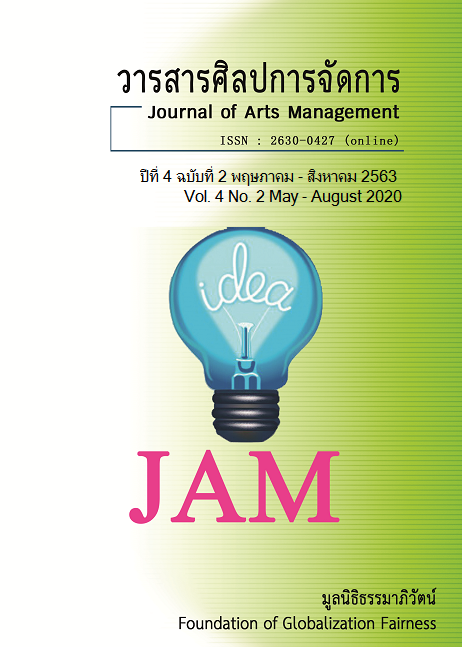Leadership in the Next Decade of School Administrators Under The Office of Basic Education Commission
Main Article Content
Abstract
The purpose of this research was: 1) to study leadership in the next decade of school administrators under the Office of the Basic Education Commission. 2) to study the needs assessment of leadership in the next decade of school administrators under the Office of Basic Education Commission. 3) to present guidelines for leadership development in the next decade of school administrators under the Office of the Basic Education Commission. This was a quantitative and qualitative research with three steps. Step 1) Study leadership in the next decade of school administrators under the Office of Basic Education Commission. The researcher interviewed, analyzed, enumerated, created a questionnaire to send to 17 experts and three rounds for EDFR. The statistics in this process were median, mode and range between quartiles. Step 2) Build the leadership qualities of the school administrators. To find the needs assessment of leadership in the next decade of school administrators under the Office of the Basic Education Commission, then use the information from step 1 to create a five level evaluation questionnaire to analyze the needs assessment of the sample group, consisting of 377 school administrators, selected by stratified random sampling. Step 3) Methods of leadership development of school administrators. This step brought the information from step 2 to create a questionnaire for a group of 11 experts by specific selection, developing leadership characteristics of school administrators. The statistics used in this process were frequency and percentage. The findings of this research found that:
- Leadership in the next decade of the school administrators under the Office of the Basic Education Commission consisting of seven aspects, consisting of 152 characteristics were as follows: 1) Leadership in knowledge goals, 26 items 2) Leadership in teamwork skills, 31 items 3) Leadership in attitudes, 16 visions, and 4) Leadership in morality and ethics in motivation, 13 items: 5) Leadership in communication skills Technology and personality with a total of 13 items. 6) Leadership in administrative change, 14 items. 7) Motivation leadership, consisting of 23 items, including leadership in the next decade of school administrators under the Office of the Education Commission, basic 152 items.
- A needs assessment was 1) Leadership in the target of knowledge, 26 items, there was a needs assessment with the opinions of all qualified persons. 2) Leadership in teamwork skills, 31 items. A needs assessment with the opinions of the qualified persons, 29 items. 3) There were 16 attitudes, visions, a needs assessment with the opinions of the qualified persons, 14 items. 4) Moral, ethical factors in motivation, number 13, a needs assessment with the opinions of all qualified persons 5) Communication factors, technological innovation and personality, consisting of 13 items, a needs assessment with the opinions of all qualified persons. 6) Leadership in management change 14 essential requirements consistent with the opinions of the qualified persons, 13 items. 7) The inspirational leadership of 23 items. A needs assessment with the opinions of all the qualified people which showed a needs assessment with the opinions of those who were well qualified.
3. Methods of leadership development of school administrators were as follows: Leadership in goals, knowledge, developed by a group lecture method workshop and brainstorming leadership, teamwork skills developed by learning from real practice, self-training and workshop leadership, attitude, common vision developed by academic conferencing methods learning from real practice and a workshop on leadership, morality and ethics in motivation. This was developed by mental development activities self-training and learning from real practice leadership skills including communication, innovation, technology and personality, developed through self-training, learning from real practice, and training to change behavior leadership, administrative change developed by training methods to learn from real practice workshop and the aspect of motivation developed by group lecture method workshop and brainstorming.
Article Details
Views and opinions appearing in articles in the Journal of Arts of Management It is the responsibility of the author of the article. and does not constitute the view and responsibility of the editorial team I agree that the article is copyright of the Arts and Management Journal.
References
ดวงกมล กลิ่นเจริญ. (2559). ผู้นำ:ความคิดสร้างสรรค์.พัฒนาเทคนิคศึกษา.14 (43) กรกฎาคมกันยายน, 46-49, สืบค้นใน http://library.uru.ac.th/rps-db/list_news.asp?Id_new=N436
นิภา แก้วศรีงาม. (2557). ความคิดริเริ่มสร้างสรรค์ (Creative Thinking). วงการครู, 1(11)
รังสรรค์ ประเสริฐศรี. (2558). ภาวะผู้นำ. กรุงเทพฯ: ธีระฟิล์มและไซเท็กซ์.
สร้อยตระกูล ติวยานนท์ อรรถมานะ. (2559). พฤติกรรมองค์การ: ทฤษฎีและการประยุกต์. กรุงเทพฯ: สำนักพิมพ์มหาวิทยาลัยธรรมศาสตร์.
เสน่ห์ จุ้ยโต. (2555). กระบวนทัศน์ใหม่การบริหารทุนมนุษย์. นนทบุรี: โรงพิมพ์มหาวิทยาลัยสุโขทัยธรรมาธิราช.
สมโภชน์ เอี่ยมสุภาษิต. (2541). ทฤษฎีการปรับพฤติกรรม. (พิมพ์ครั้งที่ 3). กรุงเทพฯ: สำนักพิมพ์แห่งจุฬาลงกรณ์มหาวิทยาลัย.
สัมมา รธนิธย์. (2556). ภาวะผู้นำของผู้บริหาร. กรุงเทพฯ: พิมพ์ดี.
อำนาจ วัดจินดา. (2560). การปรับพฤติกรรม. สืบค้นใน http://mcpswis.mcp.ac.th/html_edu/cgi-bin/mcp/main_php/print_informed.
อาภาภรณ์ ภู่วิทยพันธุ์. (2560). Career Development in Practice. กรุงเทพฯ: เอชอาร์เซ็นเตอร์.
Amabile, T.M. (2002). Motivation Creativity in Organization: On Doing What You Love and
Loving What You Do. California Management Review, 40(1), 39-58.
DuBrin, J. A.(2007). Leadership Research Findings, Practice, and Skills. (5th ed.). Boston: Houghton Mifflin Company.
Eysenck, H.J. (2003). Creativity and Personality: Suggestion for a Theory. Psychological Inquiry, 4(3), 147-178.
Hamner, W. C. & Organ, W.D. (2005). Organizational Behavior: An Applied Psychological Approach. Plano. Texas: Business Publications.


